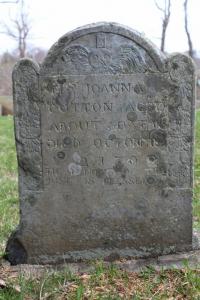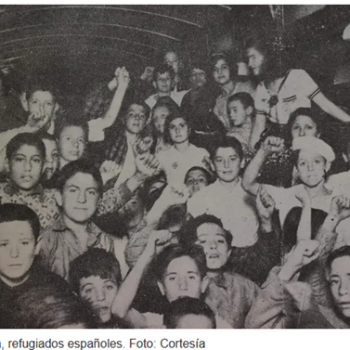In the winter of 1676-1677, a “malignant” fever swept through New England communities. In the town of Plymouth (in Plymouth Colony), one-year-old Josiah Cotton died. Josiah was the son of John and Joanna Cotton. John Cotton Jr., pastor in Plymouth for nearly three decades, is most known for his facility with the Wampanoag language and for the philandering that ultimately cost him his pulpit. At the time of Josiah’s death, it was only a few months since the end of what became known as King Philip’s War, a conflict that devastated English communities across the region and devastated Native communities to an even greater and long-lasting extent.

When Josiah died, his mother Joanna became, according to her husband, “most desolate and pensive.” Even ten days after Josiah’s death, she had “fall[en] afresh to mourning, as if she had nothing else to do.” Excessive grief displayed a failure to accept God’s will or, even worse, an idolatrous attachment to the things of this world. For a poignant discussion of this idea, see Catherine Brekus’s Sarah Osborn’s World, one of my favorite books from recent years.
Other New England ministers provided the Cottons with standard advice after Josiah’s death. Submit to God’s will. Be glad cruel Indians had not killed him. Remain moderate in grief. Increase Mather, minister at Boston’s Second Church and John Cotton Jr.’s brother-in-law, had especially pointed advice for Joanna. If she did not restrain herself, she might provoke God into further punishing her family. The lives of her other children were at stake.
This all sounds harsh, in keeping with stereotypes about grim and unfeeling puritans. There was a strong dose of mercy alongside these warnings, however. New England ministers comforted grieving parents by assuring them that their infants and young children were in heaven. Increase Mather, for instance, consoled Joanna Cotton. “God had made you an instrument,” Mather suggested, “to replenish heaven, and bring forth an heir for the kingdom of God.” Jesus Christ gathers little lambs to his bosom, another ministerial colleague stated.
Such assurances seem to contradict Calvinist verities. The ecclesiastical descendants of Calvin formally accepted that God’s eternal decrees included infants. God was no respecter of person. If God decreed each individual’s salvation or damnation prior to the world’s creation, that applied to infants and children as well. Otherwise, God would be playing favorites. Many New England ministers, though, insisted that at least nearly all infants and young children went to heaven. In his Day of Doom, Michael Wigglesworth envisioned “an infant throng / of babes, for whom Christ died / whom for his own, by ways unknown / to men, he sanctified.” At a time when hell was far more crowded than heaven, heaven was full of children.
John Cotton Jr. lived at a time when New England ministers tightened connections between the church covenant and salvation. In his sermons, Cotton sought to comfort “weak Christians.” Even those with weak faith should take comfort, he taught. “Every true Christian shall get safe to heaven,” Cotton preached. Those who had owned the church covenant had stood before the congregation and had testified to the work of God’s grace in their hearts. They should trust God to save them. At the very least, they should trust that God would save those children born within the church’s covenant.
One final word on child mortality in seventeenth-century New England. Statistics are understandably unreliable for the time period, but around a tenth of New England infants died before their first birthday. Perhaps a quarter died before the age of ten. As Anne Bradstreet wrote, young children were “like as a bubble, or the brittle glass.”
Earlier generations of historians sometimes assumed that because the death of children was so common, it was easier for parents to bear. More recently, historians such as Judith Graham have reached opposite conclusions. Each successive death was a heavier blow, and some parents endured unimaginable torment. Samuel Sewall, half of whose fourteen children died before the age of three, once dreamed that all of his sons and daughters were dead. John Saffin, who grew up in the Plymouth Colony town of Scituate, outlived every single one of his eight children, though some reached adulthood. He mourned their loss for the remainder of his life. These painful losses, it seems, bent a sometimes stark theology toward mercy.

















